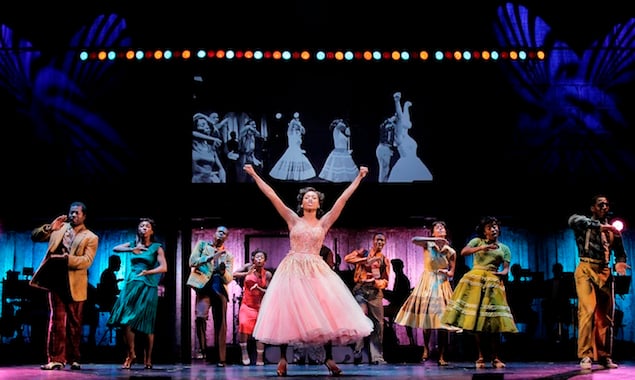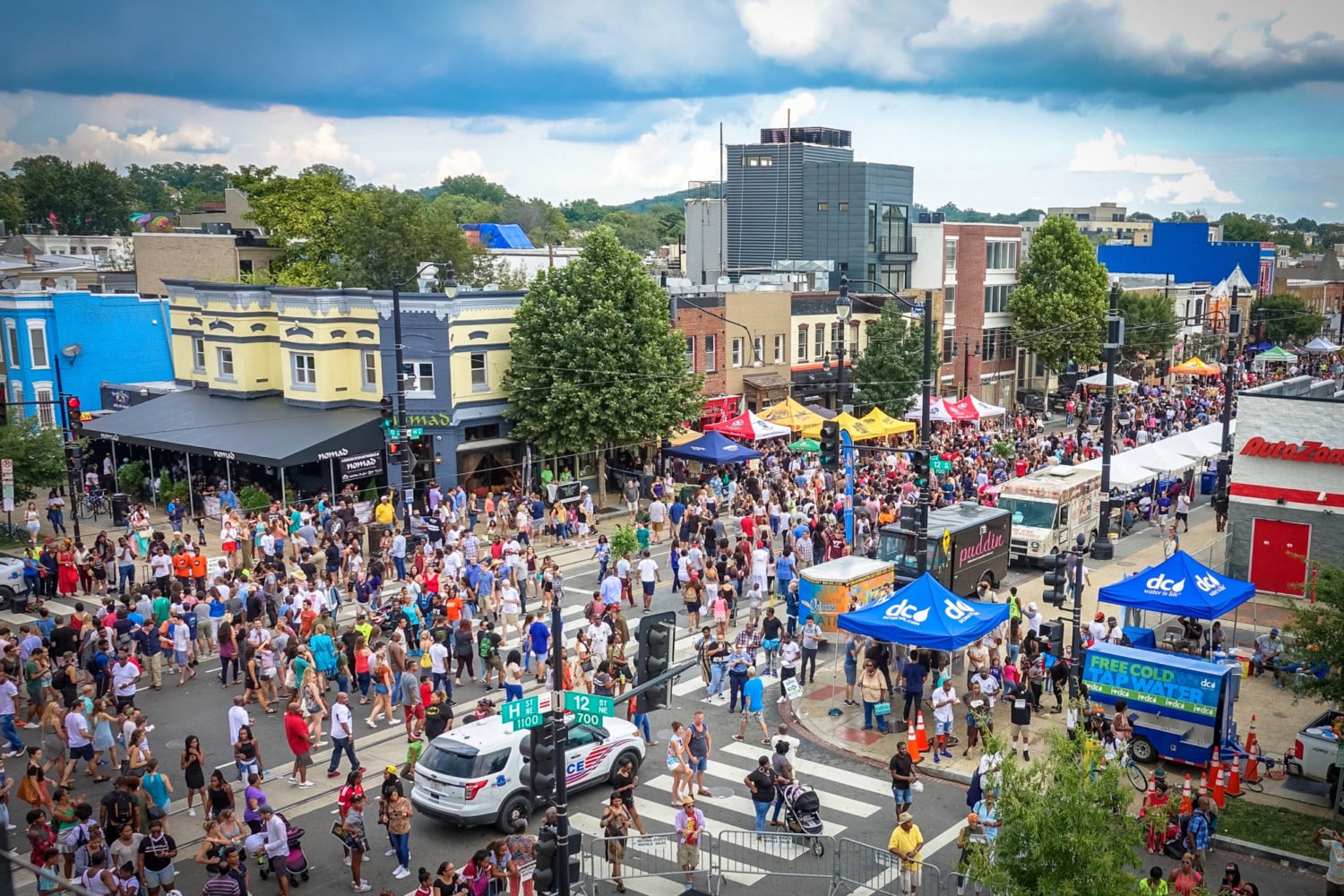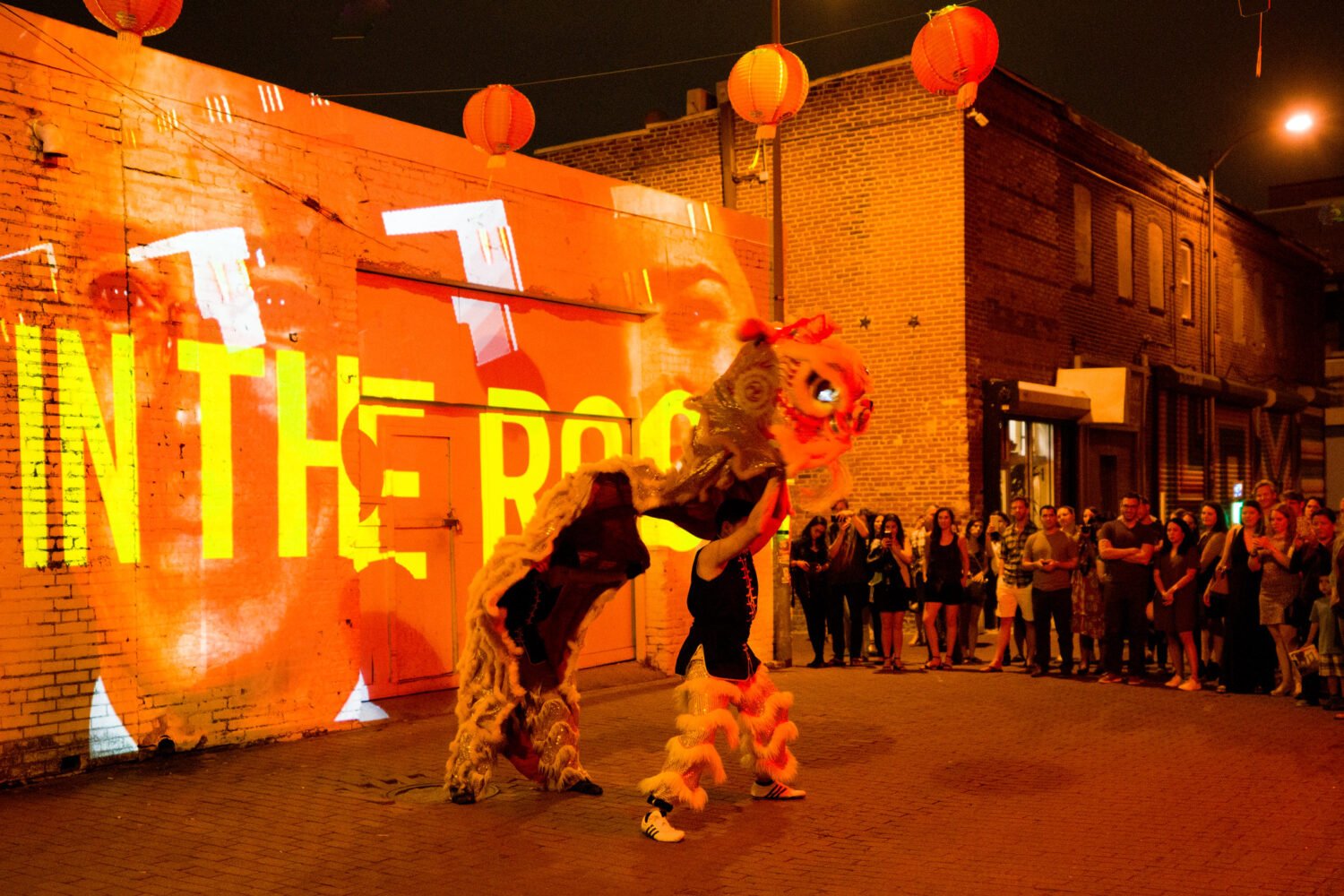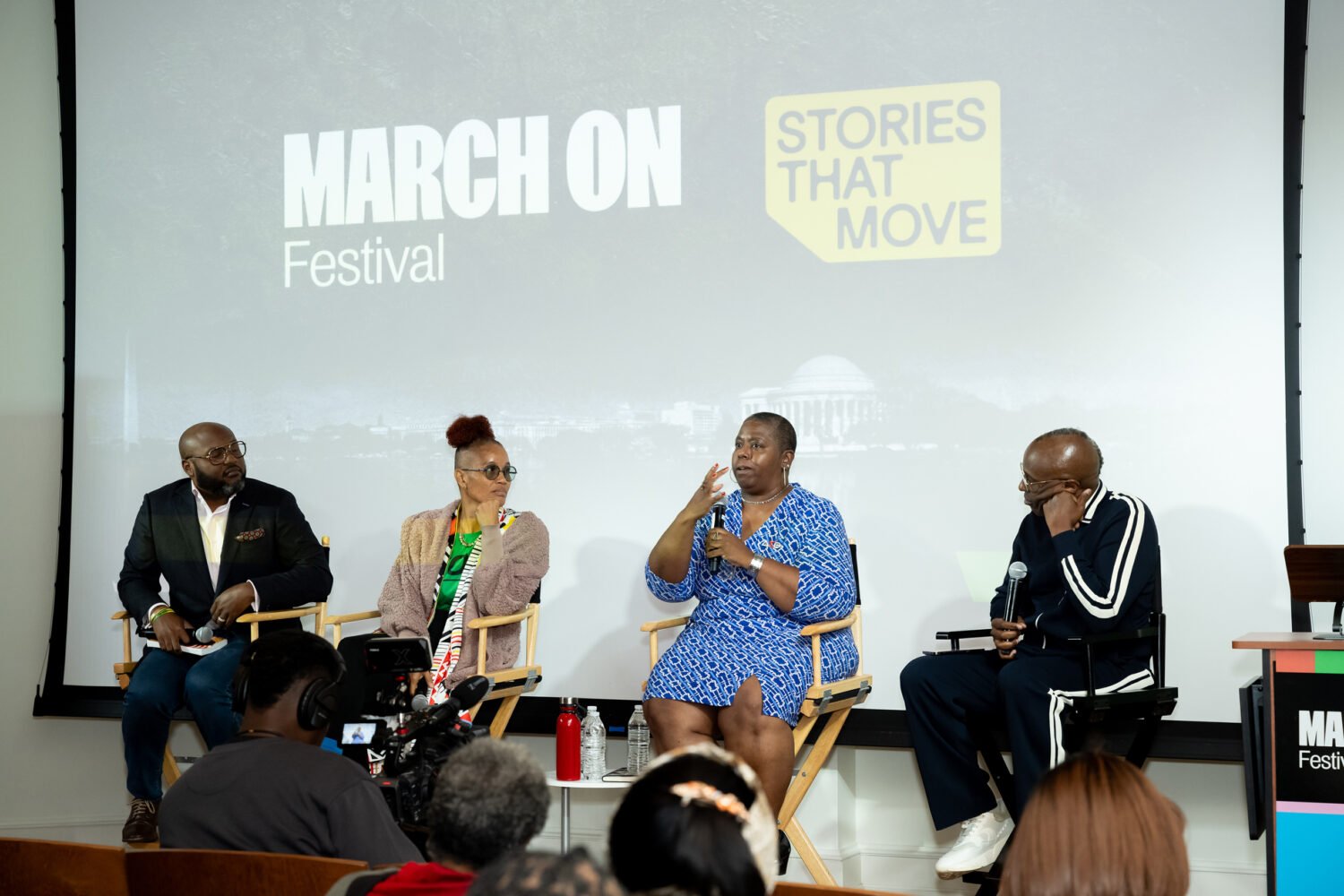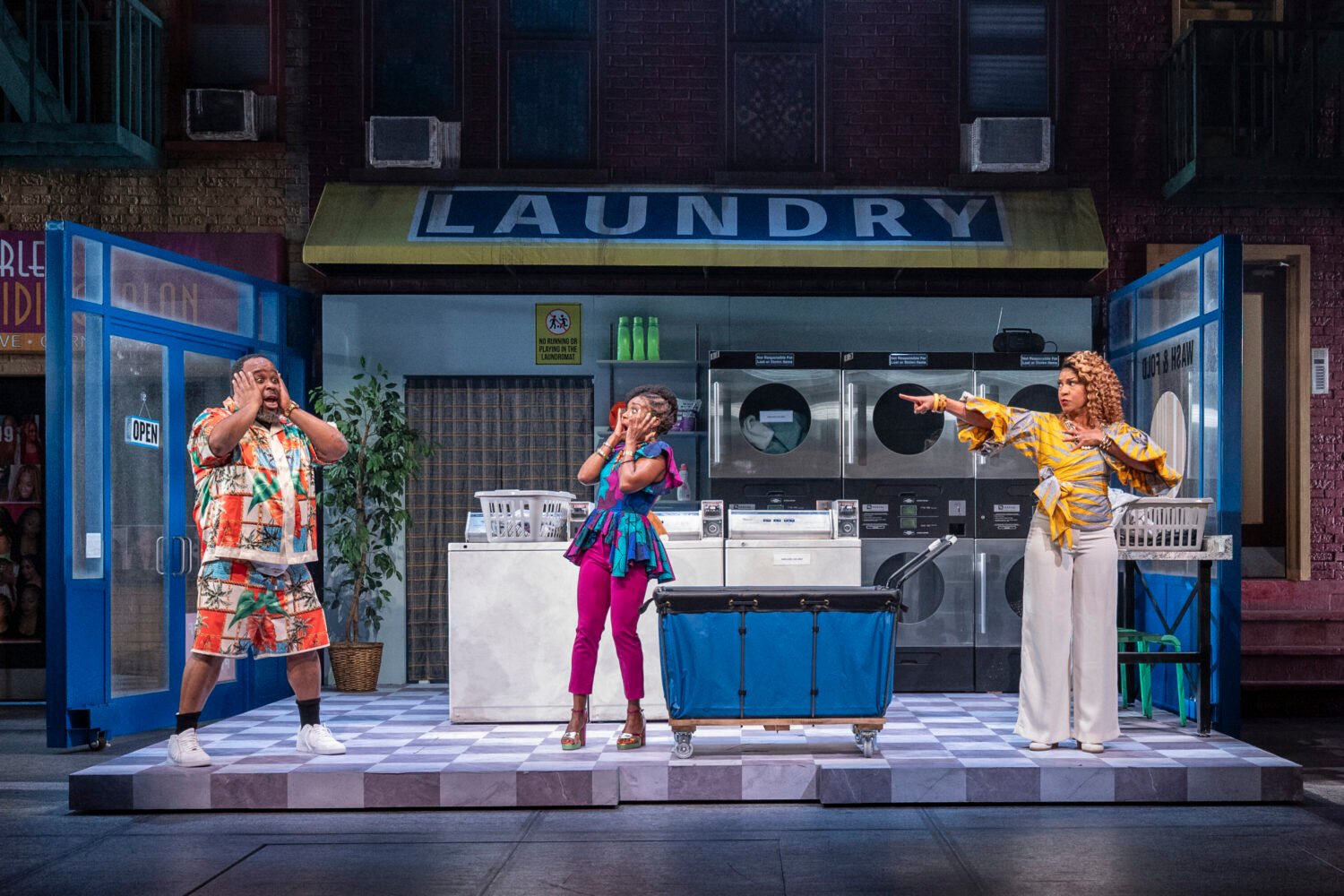
Huey Calhoun isn’t the brightest guy in the pantheon of musical theater leading men. He’s an unapologetic hick, and completely
stubborn, not to mention a terrible dresser. But when embodied by
Bryan Fenkart in
Memphis, the guy oozes everyman charm.
In the show’s national tour, now playing at the
Kennedy Center, Calhoun is the first white deejay to embrace “race
music,”
the first hints of rock-and-roll that were coming out of black
rhythm and blues clubs during the 1950s. Calhoun fully realizes
his passion for the music when visiting Delray’s, an
underground bar on the “wrong” side of town. He stumbles (well, forces)
his way onto the air on a fifth-rate radio station, and when
the kids go wild for the music he’s spinning, he begins his unlikely
rise to fame, taking with him a talented black singer, Felicia (Felicia Boswell), and stirring up trouble and romance along the way.
Memphis cleaned up at the Tonys back in 2010, taking
home the Best Musical award among others, and the show achieves many of
the
traditional pleasures of the old-fashioned musical. The plot,
with its themes of ambition, underlying racial tension, and
finding common ground through music and dance, is fairly
conventional, but the songs, from
Joe DiPietro and
David Bryan, are bluesy and warm, from
Felicia’s first radio smash, “Someday,” to the plaintive civil rights
anthem “Say a Prayer.” Huey’s
character does have a place in the pantheon of glorified
Caucasian characters required to bring white and black folks together
in the realm of Hollywood-style storytelling, but the ultimate
resolution of
Memphis’s storyline doesn’t feel too sterilized.
The Kennedy Center show, directed by
Christopher Ashley, has flashy jewel-toned costumes and highly stylized choreography from
Sergio Trujillo. Trujillo’s routines don’t feel particularly natural or spontaneous, but the precise movements and athleticism of
Memphis’s dancers are impressive, particularly when the heavyset Bobby (Will Mann) takes the stage to jam his way through the infectious “Big Love” on Huey’s television, an
American Bandstand-like show with black dancers.
The cast of
Memphis is stocked with talent, from its ensemble to its supporting roles.
Quentin Earl Darrington, recently seen on the Kennedy Center stage as Coalhouse Walker Jr. in its
Ragtime revival, brings a hefty, guarded presence to Delray, Felicia’s protective brother, though bits of humor and compassion shine
through his rough exterior. Huey’s mother, played by
Julie Johnson, delivers an unexpected showstopper with the gospel-inspired “Change Don’t Come Easy.” And then there’s the leading lady
of
Memphis, Boswell, whose singing swings from sweet to sultry. She’s a performer who throws her entire body into the songs of the plucky
character who shares her first name.
Memphis
is at the Kennedy Center through July 1. Running time: about two and a half hours, with a 15-minute intermission. Tickets
($39 to $115) are available through the Kennedy Center’s website.

